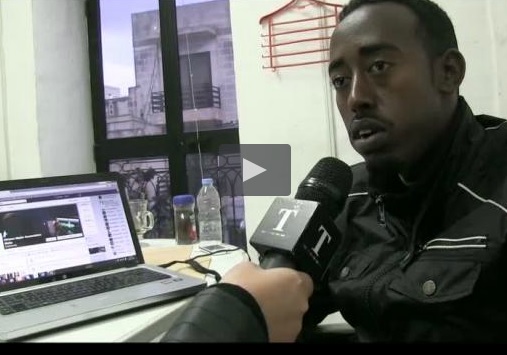Somali’s radio show a bridge to migrants

 Ahmed Nuur Ibrahim, who fled Somalia after fellow journalists were shot dead, is setting up his own radio programme for African migrants in Malta.
Ahmed Nuur Ibrahim, who fled Somalia after fellow journalists were shot dead, is setting up his own radio programme for African migrants in Malta.
“When more than 18 fellow journalists were killed, some in my hometown of Mogadishu, I feared for my own life. I left the capital and moved around the different regions in Somalia. Since I covered humanitarian issues, life got even more difficult for me so I had to leave for Ethiopia.
“I was not welcome there either, so I left my two sons and wife behind and headed to Sudan, where I faced the same threats. It was then that I decided to follow my friends to Libya for Europe,” the 26-year-old says.
Mr Ibrahim sits in a rented room in a side street off Ħamrun’s main road. The room is bare except for a donated table and three mismatching chairs.
Sitting down next to him, David Millner, who has a radio programme of his own called Connect Africa, recounts how, around a year ago, Mr Ibrahim spoke to him about pursuing a career in journalism here. Together they set up the African Media Association Malta, an NGO embracing African journalists.
The NGO’s first project – Somali Media Malta – is headed by Mr Ibrahim and supported by EEA funding through SOS Malta and also the US Embassy.
Through this project, they want to produce programmes for Somali migrants in detention centres and the African community in Malta.
“Migrants at the detention centres are completely cut off from the world, so we’ll start by providing news bulletins about what’s going on in their own country,” Mr Millner says.
“We will then start giving out information about life and culture in Malta and how to integrate within the local community. We’ll start off with the Somali language and then move on to other languages.
“It would be of great help if radio stations can spare any old equipment, which we can use to record our programmes and then transmit them through a free online radio station or via MP3 files,” he adds.
Mr Ibrahim himself spent five “stressful” months at the detention centre in Ħal Far. He arrived in Malta in August 2013 after 10 years working in the media in Somalia.
He started off at 15 with a weekly radio programme for children and then worked his way up, mainly focusing on human rights. He served in various positions, including as news editor for radio Daljir and as a reporter for the UN humanitarian news agency Irin. Mr Ibrahim was also head of programmes at the Somalia Broadcasting Company and a reporter for Somalia Report.
When he fled sub-Saharan Africa in May last year for Libya, he was kidnapped by smugglers in the desert and had to pay a ransom of $3,500.
Once in Tripoli, he was thrown in prison, as he had no documents or money.
“Everything is about money in Libya. If you have money, you’re safe, if not you’re beaten up or jailed. When I managed to escape, I paid another $800 to get on a boat headed to Europe, but we ended up in Tunisia instead.
“We were 85 in all and we were taken to the border between Libya and Tunisia. For the second time I was thrown in a prison cell but I managed to run away again.”
His family sent him money to flee on a boat again and he was “lucky” enough to be saved by the Maltese armed forces. He says he will always remain grateful to the Armed Forces of Malta. Once here, he received refugee status.
“When I gained my freedom and moved to the open centre in Marsa, I started looking for a job in journalism but this time I wasn’t so lucky. So I thought of doing what I do best: inform and entertain. That is why I am urging migrants who are journalists by profession to join me in this project,” he adds.
Mr Ibrahim can be contacted on [email protected].
More information is available on facebook.com/africanmediamalta?fref=ts.